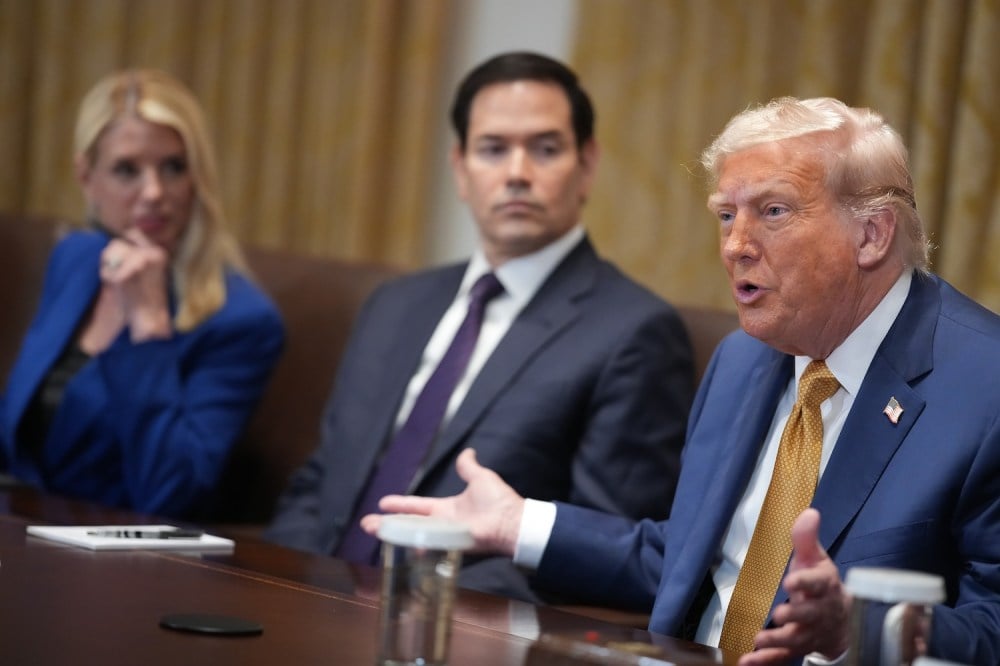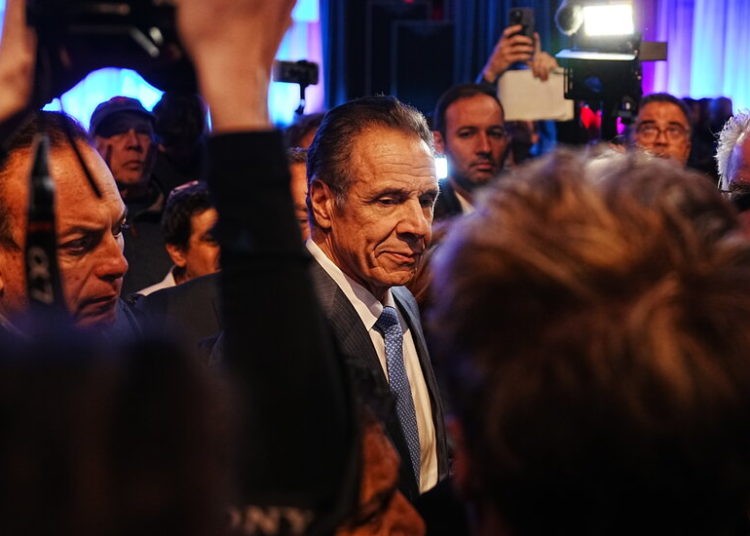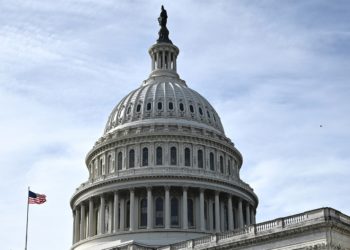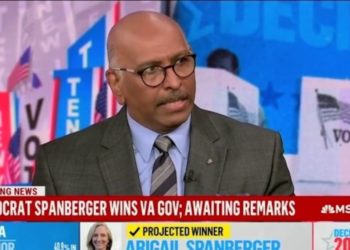Ever since the MAGA movement engulfed the U.S. Republican Party, it has harbored two competing foreign-policy tendencies—a muscular internationalism and a neo-isolationist reluctance to intervene. That tension has played out on a number of issues, and it surfaced again over how to navigate Cuba policy—whether to take a more hard-line approach that would aim to topple the regime or settle for a less aggressive set of punitive actions without dramatically escalating sanctions. Judging by a statement of policy that President Donald Trump issued at the end of June, he appears to be siding with the pragmatists who want to keep Cuba on the back burner for now.
Just before departing for the Florida Everglades to open “Alligator Alcatraz,” his new detention camp for undocumented immigrants, Trump unveiled the fifth National Security Presidential Memorandum (NSPM-5) of his second term—a comprehensive statement of his policy toward Cuba.
During his first few months in office, Trump took a number of piecemeal measures foreshadowing a hard line. On his first day in office, he reversed steps to relax sanctions that former President Joe Biden had taken just a few weeks earlier. Since then, the State Department has stepped up diplomatic pressure to force countries hosting Cuban doctors to close those programs. It stopped issuing visas for Cubans to visit family in the United States or participate in cultural and educational exchanges, and the Treasury Department began denying U.S. groups licenses to visit Cuba on those programs.
The administration has broken off all substantive diplomatic dialogue with the Cuban government, canceling even semiannual migration talks. At the same time, it canceled Biden’s 2022 humanitarian parole program, which brought more than 100,000 Cubans to the United States legally, putting all of them (and another 400,000 to 500,000 who arrived undocumented) at risk of detention and deportation. Instead of talking with the Cuban government, the chargé of the U.S. Embassy in Havana has made an ostentatious public display of engaging with and supporting Cuban dissidents—a strategy reminiscent of similar actions by George W. Bush’s administration in an effort to provoke the Cubans into breaking off diplomatic relations.
But NSPM-5 came as something of a surprise because it does not fully reinstate the “maximum pressure” policy of regime change that characterized the last two years of the first Trump administration. Instead, it harks back to the first two years of his first term by reinstating the June 2017 NSPM on Cuba with only a few modest changes.
To be sure, that policy was not one of engagement. The new NSPM reaffirms the traditional U.S. approach of hostility and coercion based on economic sanctions that has characterized U.S. policy since 1962. But it is less aggressive than expected from an administration with Marco Rubio serving as both as secretary of state and national security advisor—and less aggressive than some insiders had predicted.
Some anonymous sources have told the press that by prohibiting “indirect” as well as direct transactions with Cuban firms linked to the country’s armed forces, the new NSPM opens the door to “secondary sanctions” on foreign companies. But NSPM only calls for modifications of existing sanctions regulations, which only apply to “persons subject to U.S. jurisdiction”—people and entities with a U.S. presence—and so does not authorize secondary sanctions, as that term is commonly understood, against foreign companies without a U.S. presence. The administration could impose such sanctions, but it would probably require additional executive orders and different statutory authority than the embargo, which only authorizes sanctions against Cuba, not third parties.
Even under the NSPM, it’s unclear how any firms, foreign and domestic, could be held liable for doing business “indirectly”—presumably meaning through some third entity—with Cuban firms connected to the armed forces unless all those indirect conduits are added to the State Department’s restricted entities list. Otherwise, how would a company doing business in Cuba know if their Cuban counterparty was a prohibited conduit?
This ambiguity may be intentional—to create so much uncertainty about the rules that companies are afraid to do any business with Cuba for fear of committing an inadvertent infraction that could cost millions in fines. Nothing is more Kafkaesque than not knowing whether your actions violate the law until you’re charged. More will be revealed when the State Department issues its updated restricted entities list by the end of July 2025, as the NSPM requires.
In any case, NSPM-5 signals that Cuba is not a priority for the administration at the moment. While one camp within the administration continues to argue that the catastrophic crisis facing the Cuban economy makes the country ripe for regime change, the other camp seems to have the upper hand. NSPM-5 represents continuity, with no new initiatives to dramatically escalate sanctions.
These divergent opinions echo the conflict over whether to extend Chevron’s license to continue business in Venezuela. Richard Grenell, Trump’s presidential envoy for special missions, argued in favor of the extension in order to keep Venezuelan oil out of the hands of China. Rubio argued to keep the pressure on. Grenell appeared to have won the argument until three Cuban American members of the House threatened to sink Trump’s “Big Beautiful Bill,” after which Trump revoked Chevron’s license but allowed it to keep its assets in the country.
The Venezuelan dispute signaled Trump’s reluctance to return to his first administration’s aggressive but unsuccessful regime change policies toward Venezuela and Cuba designed by former National Security Advisor John Bolton and former Secretary of State Mike Pompeo—both now anathema to the president.
Harking back to its namesake in the 1930s, Trump’s “America First” movement has a neo-isolationist tinge that reflects the president’s instinctive suspicion of foreign entanglements. On various occasions, Trump has expressed skepticism about regime change policies and the risk that they pose of creating failed states and pulling the United States into “endless wars.”
In one of his first foreign-policy speeches, in 2017, Trump promised that the United States would no longer go abroad to “construct democracies in faraway lands or create democracies in our own image. … We are not nation-building again.”
“We more and more are not wanting to be the policemen of the world,” he declared in 2018.
And “[r]egime change takes chaos,” he said last month, foreswearing regime change in Iran. “We don’t want to see so much chaos.”
If the aggressive escalation of sanctions against Cuba proposed by some Trump advisors and Cuban Americans in Congress were to succeed at collapsing the Cuban regime, then chaos is what they’d get, with dire consequences for a wide range of U.S. interests. Migration pressures would skyrocket, risking a repeat of the 1980 and 1994 migration crises. A collapse of public order on the island would end counternarcotics cooperation, giving drug traffickers the opportunity to establish a beachhead in Cuba, with easy access to the United States just 90 miles away.
The resulting social disorder would draw in Cuban Americans desperate to protect their relatives, spurring calls in Congress for direct U.S. intervention—just as were heard in 2021 in response to just a single day of nationwide demonstrations.
Trump would face pressures akin to those faced by President William McKinley in 1898, when the violence of Cuba’s war of independence with Spain enflamed U.S. opinion, leading to an intervention that has entangled Washington in Cuban internal affairs ever since—exactly the scenario that the president has promised not to repeat. All these risks can be limited by avoiding an escalation of sanctions or pursuing limited engagement.
How Trump’s Cuba policy unfolds over the next three and a half years will depend on whether Grenell’s preference for leaving Cuba on the back burner or Rubio’s preference for escalation carries the day. Rubio has the advantage of controlling the foreign policymaking apparatus, but Grenell has the president’s ear, and his views are more in line with Trump’s gut instinct. When Trump has to chose between his gut and the advice of the foreign-policy bureaucracy, his gut usually wins.
The post Trump Appears to Move off Regime Change Approach to Cuba appeared first on Foreign Policy.




